Stormont: Regional rate rise of 4% for next financial year
- Published
- comments

Rates bills are due to be issued to households and businesses at the beginning of April
Stormont's executive has agreed to raise the regional rate by 4% for the next financial year, First Minister Michelle O'Neill has said.
Rates bills are due to be issued to households and businesses in April.
Ms O'Neill has already ruled out increasing the regional rate by 15% as a means of revenue raising.
This is despite the government in London asking the executive to raise at least £113m in local revenue.
Rates are a property tax which help fund public services in Northern Ireland. Bills are issued to households and businesses in Northern Ireland by Land and Property Services (LPS) at the start of the new financial year in April.
Bills are calculated using the district rate, set by councils, and the regional rate, set by Stormont.
'Mindful of the pressures'
Ms O'Neill said the executive decision on the 4% increase was a "very responsible way to go forward" and "reasonable in terms of the inflationary pressures that we have".
"We're determined to secure every penny of financial support for our public services and we're determined to achieve everything that was put down in that deal before Christmas, but we're also not prepared to put punitive costs on to households that are struggling through the cost-of-living crisis," she said.
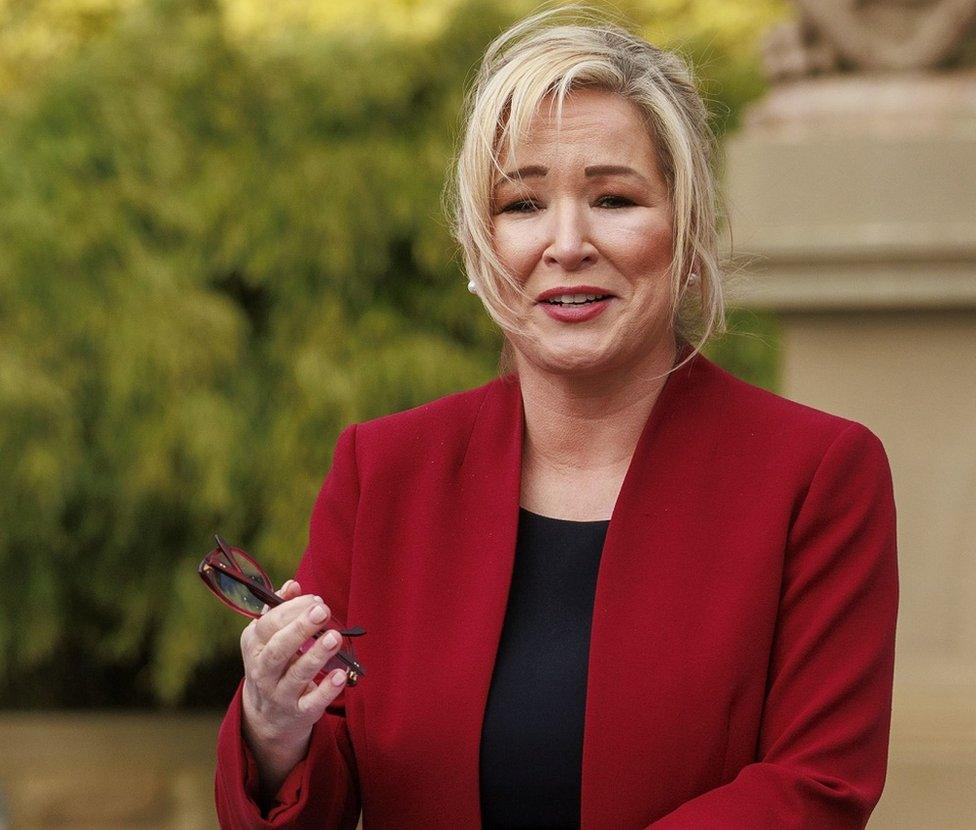
Ms O'Neill says the executive is determined to secure "every penny of financial support"
Speaking outside Stormont Castle, the Sinn Féin vice-president said ministers were "very mindful of the pressures that all households are feeling right now and particularly businesses as well".
Ms O'Neill said the executive also discussed a paper on the health service but there were "no decision points".
She also said ministers discussed Strule Shared Education Campus in Omagh, County Tyrone, as well as special educational needs provision.
Strule is the biggest school building project to be planned in Northern Ireland but it has been beset by delays, with the project's cost soaring to an anticipated £341m.
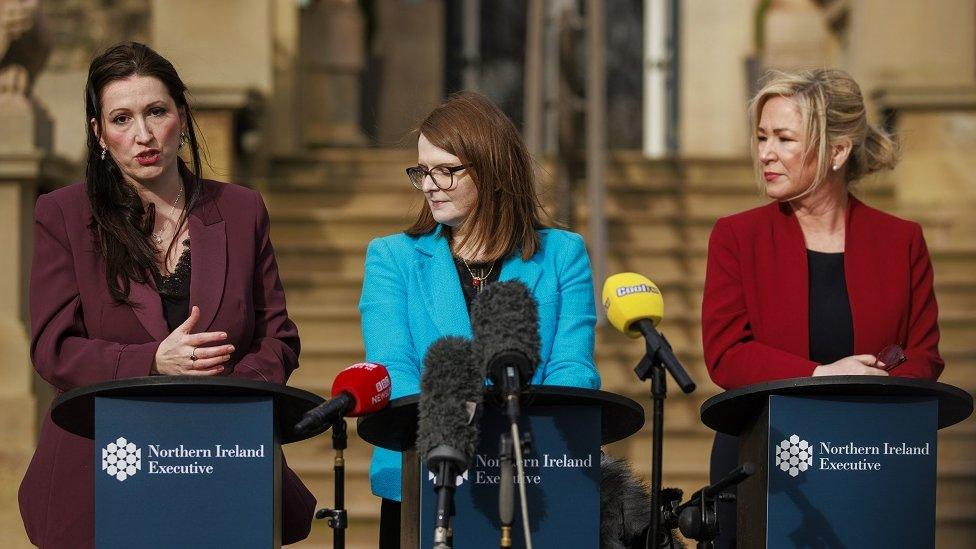
Deputy First Minister Emma Little-Pengelly (left) with First Minister Michelle O'Neill (right) and Minister of Finance Caoimhe Archibald addressed the media at Stormont Castle after a meeting of the Northern Ireland Executive Ministers about the regional rates and other matter
Deputy First Minister Emma Little-Pengelly said the regional rate for the coming year "balances the needs of the people of Northern Ireland in terms of the pressures that they are under".
"We not sitting here saying that we are going to do nothing. We are indicating that we are prepared to do something but that something has to be fair - it has to be reasonable," she said.
Ms Little-Pengelly, of the Democratic Unionist Party (DUP), said the decision would mean an extra £2 per month on rates bills for domestic properties with an average capital value of £123,000, and an additional £10.73 per week for businesses with a rateable value of £50,000.
She also said an existing £350m of rates support would still be available in the year ahead.
Finance Minister Caoimhe Archibald said the regional rate increase, if approved by the assembly, would provide up to £30m for public services.
This figure could be lower once rate reliefs are taken into account.
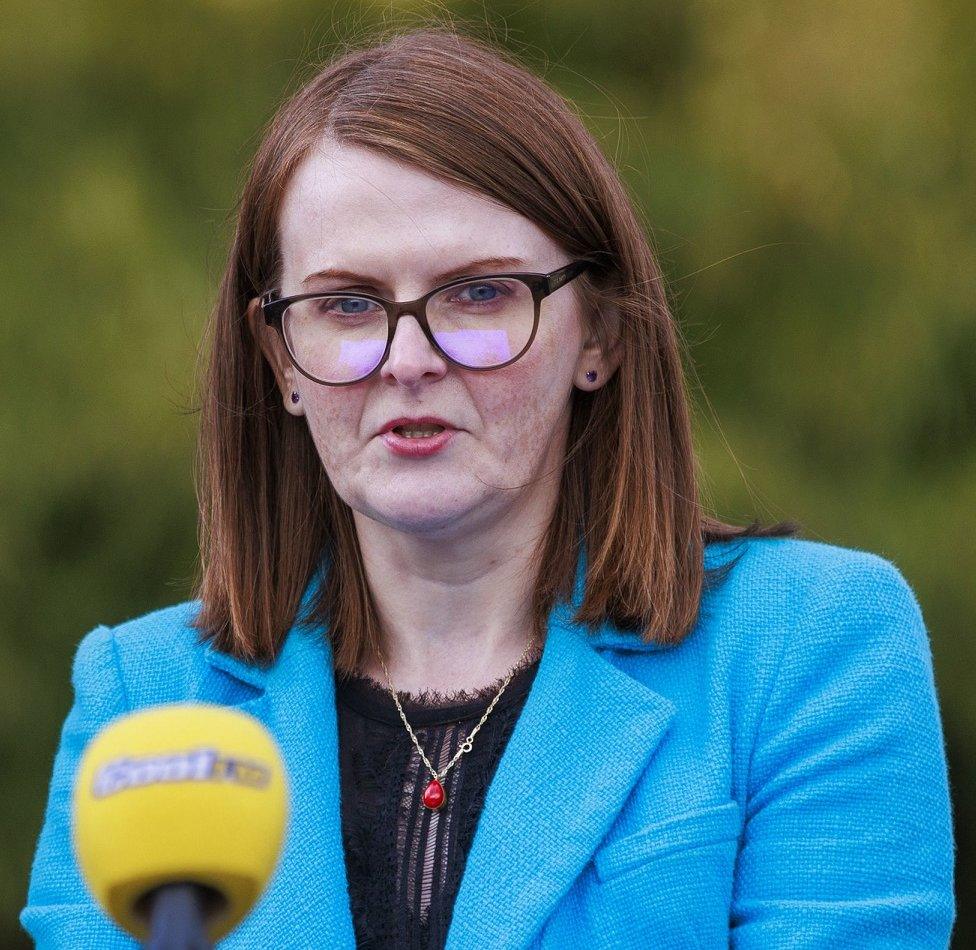
Sinn Féin's Caoimhe Archibald says the agreed rate should not put a "really high burden" on families and businesses
"The executive's recommendation to the assembly should be seen as a clear demonstration that we recognise the role we have to play to ensure our finances are on a more sustainable footing," the Sinn Féin minister added.
"The rate that we agreed today is a recognition of the fact that we do want to deliver high-quality public services, but also that families and businesses are facing challenges in terms of the cost of living and the cost of doing business, and it's not putting a really high burden on them."

'It could put people off'
Businesses in Larne - where the district rate increase set by Mid and East Antrim council was the biggest in Northern Ireland - have been reacting to the news that the regional rate will increase by 4% in line with inflation.
Conor McNeill from the Olderfleet bar and restaurant said the rate increase will mean they have to pass this additional cost on to their customers in the form of higher prices.
He said: "It just means we have to raise our prices for drinks and food, that then could have a knock on effect of less custom, it could put people off, even though we have no other option but to do this."
"Pints especially, we've had to raise the price of. We know there's a limit to what we can put our prices up, but there's no limit to what costs are put on us," he added.

Mr McNeill says he will have to pass the rate increase on to his customers
There are warnings this could lead to further closures in Larne.
Brian McRandall, chair of Larne Business Forum said this could be a nail in the coffin for some businesses.
"Over a two week period leading into Christmas and the start of January, we saw four businesses close on the high street alone," he said.
"That will only get worse because we're about to see another minimum wage increase and rates bills are going up."

NI Retail Consortium director Neil Johnston described the rate increase as "bewildering".
"Northern Ireland businesses already pay the highest business rates in the UK and the Executive has done little to close that gap," he said.
"This is an extremely unhelpful decision for retailers and consumers. What is needed is a commitment to bridge the gap and bring NI more into line with the rest of the UK on rates and a timetable for doing so."
Retail NI chief Glyn Roberts welcomed the fact the increase is "within the level of inflation" but he also criticised disparity in business rate relief between England and Northern Ireland.
'Constructive' discussions
The finance minister said she had "constructive" discussions with the Treasury on Wednesday over funding for Northern Ireland.
"I had a constructive first meeting with the Treasury yesterday and look forward to continued engagement in the time ahead on a number of matters including a new fiscal framework," Ms Archibald said.
The Northern Ireland Executive is facing pressure from the UK government to commit to locally raising revenue of at least £113m in 2024-25.
It is a condition the Treasury has attached to a wider financial package worth £3.3bn.
The £113m figure is what the government previously estimated could be raised by increasing the regional rate by 15%.
Sinn Féin and other parties in the Stormont Executive have argued that the government's proposed timetable for revenue raising is too short.
Last year Northern Ireland Secretary Chris Heaton-Harris had to set the regional rate while the power-sharing institutions were suspended.
He chose to increase it by 6%, which at the time was lower than inflation (10%) and lower than the average increase (6.67%) of domestic district rate increases by councils in Northern Ireland for 2023-24.
If the executive backs the proposal from the finance minister, legislation will then need to be passed by the Northern Ireland Assembly in March.
All 11 councils in Northern Ireland have already reported their rates increases for the next financial year.
Related topics
- Published14 February 2024
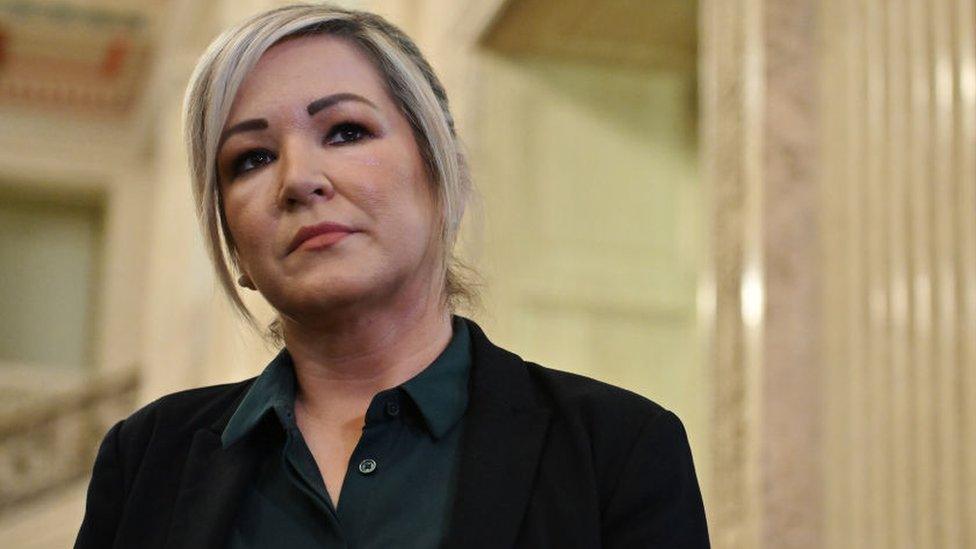
- Published15 February 2024
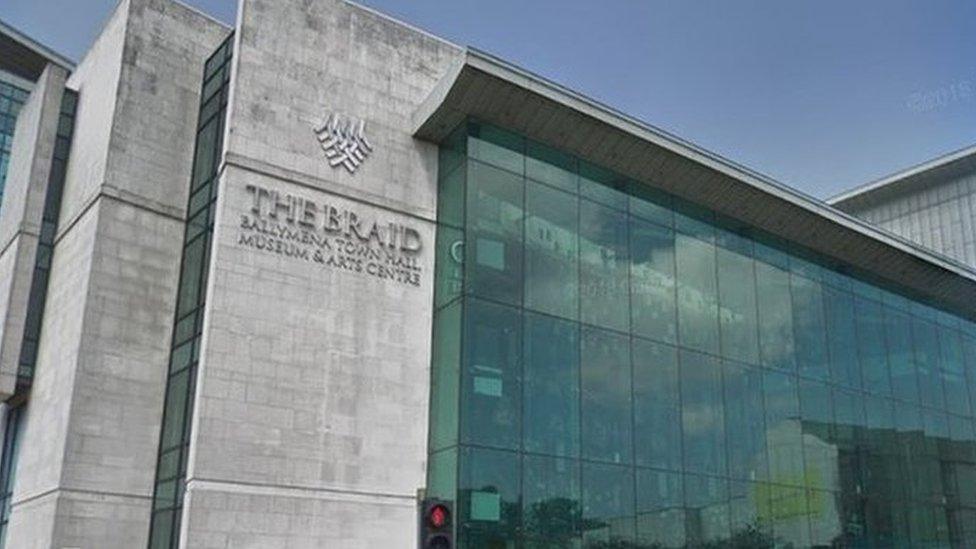
- Published13 February 2024
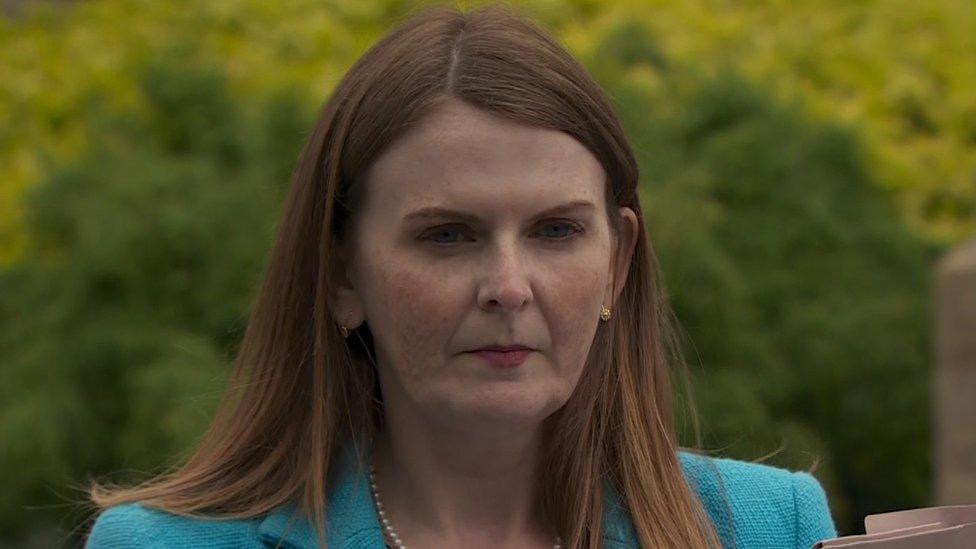
- Published23 February 2023

- Published18 January 2023
